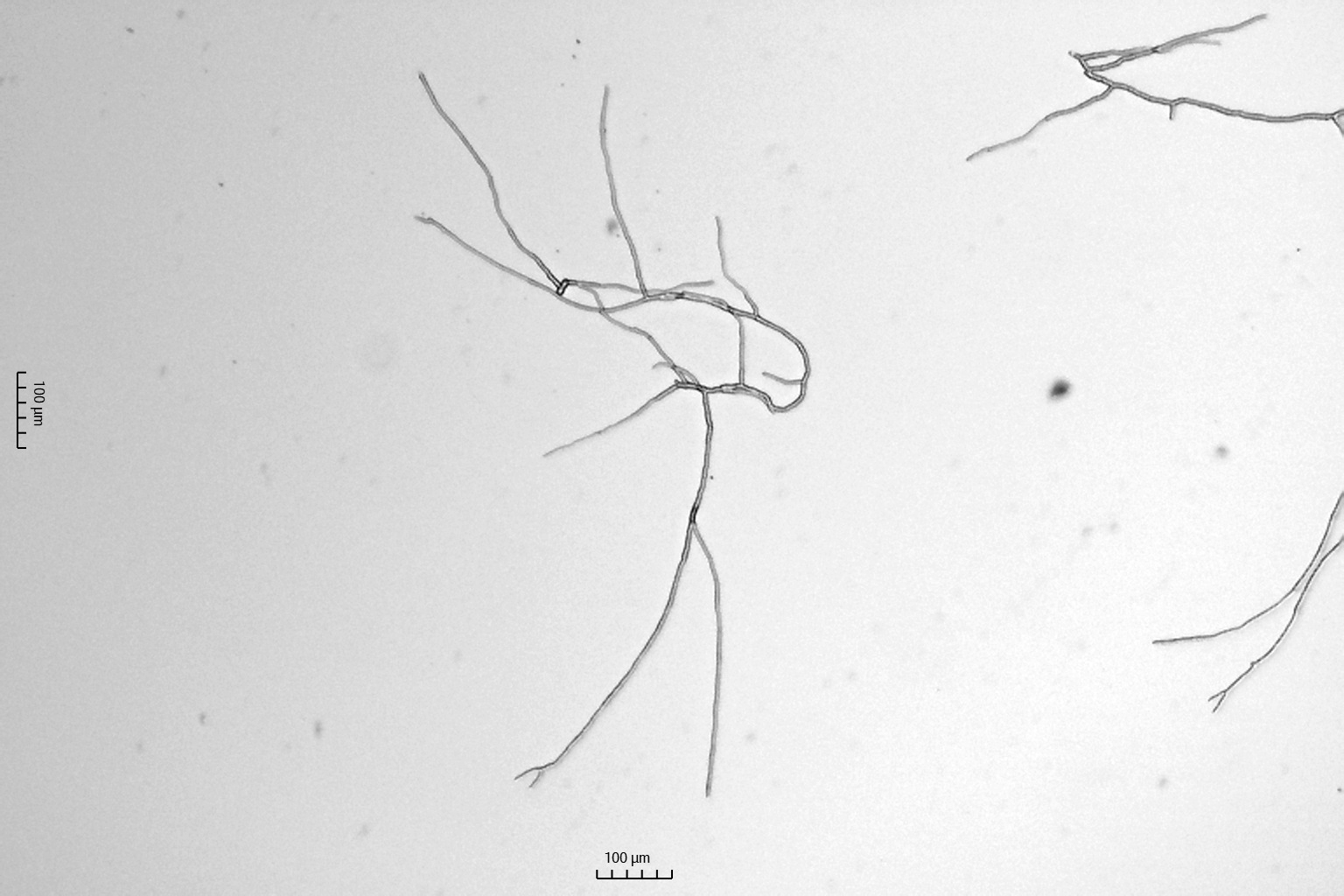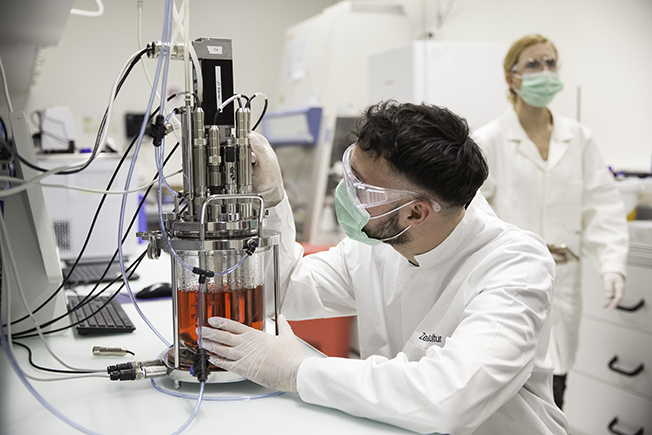

How Marlow Ingredients is leading the way to a sustainable protein revolution
From its origins in the 1960s to its current B2B ventures, Marlow Foods, through its Quorn brand, has accelerated the protein transition with innovative, eco-friendly solutions for a future-focused food industry. Stephanie Jochems, Managing Director of B2B division, Marlow Ingredients, reveals how its new partnership approach could turbo-boost the shift
Even if you’re not a vegetarian or vegan, you’ve probably heard of Quorn, a trailblazer in alternative meats. Fewer people, though, would recognize Marlow Foods – the UK company behind Quorn – or know that its origins trace back to the 1960s. At that time, Joseph Arthur Rank financed the discovering and development of Fusarium venenatum, a fungus that converts carbohydrates into high-quality protein. Spearheaded by Lord Rank, Marlow was way ahead of its time, developing a protein solution that required fewer resources than traditional livestock farming. “It was originally founded to tackle concerns about food scarcity, particularly the lack of protein,” explains Stephanie Jochems, Managing Director of Marlow Ingredients, the Marlow Foods B2B subsidiary launched in April 2023. “Interestingly, the relevance of this solution has only grown, as we now face the problems caused by inefficient food systems and the need to accelerate the shift to sustainable protein sources.”

When discussing the protein transition, Jochems reports that Marlow Foods’ executive team asked how they could make the greatest impact in speeding up that shift. “We realized we needed to expand through partnerships, applying this technology in diverse ways with other companies,” she says. “That’s why Marlow Ingredients was created – to drive broader impact.”
Marlow Foods making its mycoprotein available to the wider food industry surprised many in the sector. “As a company, we reflected on it and decided we wanted to be part of the future,” Jochems notes. “We focused on helping accelerate the protein transition rather than holding on to past practices. One of the key lessons we’ve learned is that it’s crucial to be a solutions partner, not just an ingredient provider.”
Marlow Ingredients’ quick progress after launching is notable. In May 2023, it announced a collaboration with Denmark’s Tempty Foods. Martina Lokajova, CEO & Co-founder of Tempty, cited the “sustainable and competitive edge” Marlow’s mycoprotein would bring to their company. Although Tempty’s products were already launched in Denmark’s food-service sector, the partnership with Marlow Ingredients will accelerate their growth and help them to expand into new markets.
Mycoprotein has a big advantage in that it’s neutral in flavor and excellent at absorbing other flavors, which means it doesn’t require masking agents or unnecessary additives to create delicious products. Its natural structure also helps achieve the desired texture in meat alternatives and, in some cases, dairy alternatives. When processed correctly, it can deliver a very meat-like consistency, especially in chicken alternatives.
Jochems believes there are three key things customers such as Tempty can do to accelerate the protein transition. “First, we must ensure that all the food we produce meets four essential consumer values. Second, we have an opportunity in how we communicate about proteins. And third, we must innovate through a commercialization lens.”
By focusing on commercialization, Jochems explains, “we’ve been able to engage directly with partners and customers, accelerating innovation by aligning more closely with market needs. Instead of just pushing a solution, we’re better at developing products that meet consumer expectations and commercial viability. This market-focused strategy – understanding what works for both consumers and customers – has been crucial for driving innovation”.
Prerequisites for success
Jochems highlights four prerequisites for success. “First, consumers want delicious food – they prioritize taste and texture. Second, the price must be right; food needs to be affordable. Third, it must meet nutritional standards. And lastly, there’s sustainability.” She notes that while sustainability is important, taste, texture, and price are often the main decision drivers for consumers.

But Jochems adds a broader question: do we really understand the true cost of protein? “Not just the price,” she explains, “but the full cost in terms of carbon emissions, biodiversity loss, and deforestation.”
Even without fully accounting for these external costs, Jochems says that mycoprotein-based products already offer great value. “They deliver in terms of nutrition, taste, texture, and sustainability. In some cases, we’re seeing price points approach parity with traditional meat, which is a significant milestone.”
Nutrition is an area that Jochems and her colleagues are particularly proud of, given the extensive research conducted. A recent study from the University of Exeter in the UK revealed that regularly substituting meat with mycoprotein, in the form of Quorn products, could help lower bad cholesterol by 10%, comparable to switching to a Mediterranean or vegan diet.
“We’ve invested heavily in research and collaboration with renowned partners, such as the University of Exeter and Imperial College London,” Jochems continues. “As pioneers of mycoprotein, we feel a responsibility to demonstrate its health benefits and ensure it’s safe and beneficial for consumption. We support independent academic research with no strings attached, encouraging our partners to publish their findings regardless of the outcome. This transparency is crucial in today’s world.”
“Mycoprotein is a high-quality, complete, non-animal protein,” says Jochems. “It contains all nine essential amino acids, and unlike traditional animal proteins, it provides a significant amount of fiber. Western European diets often lack fiber, despite its health benefits. Mycoprotein is also low in saturated fat, free of cholesterol, and a good source of key vitamins and minerals, such as zinc, manganese, and folate.”

Mycoprotein scores impressively well on the Protein Digestibility-Corrected Amino Acid Score (PDCAAS), achieving a rating of 0.9962, nearly equivalent to milk and higher than both beef and soy. “This highlights its exceptional suitability as a protein source for human consumption,” Jochems says.
Green goals
Marlow has also consistently worked with independent partners to ensure the accuracy of its environmental impact data. “A 2023 report by Carbon Trust provides comprehensive details on these studies,” Jochems says. “Generally, the findings are favorable compared to traditional proteins. Mycoprotein produces 50 times fewer carbon emissions than beef and seven times fewer than chicken. It requires 16 times less water than pork and uses significantly less land – about six times less than pork. This reduced land use is particularly significant for biodiversity and ecosystem health.”
While these stats are impressive, Jochems acknowledges areas for improvement. “One key area is energy use. A few years ago, we transitioned our main mycoprotein production site to renewable electricity from solar, wind, and hydro sources. Now, at least 85% of our fermentation site’s energy consumption is renewable. Another area of focus is circularity. Currently, we turn carbohydrates into protein, but an exciting next step would be to use byproducts from other food processes as inputs for our production. This research is ongoing and represents a big opportunity.”
While sustainability is important, it’s often not the main decision driver – taste, texture, and price come first
With rising populations and environmental concerns, it’s clear we need to embrace sustainable protein sources. However, communicating the need for such a transition to consumers is a challenge. Jochems says, “We should present the protein transition as a positive development rather than an alternative. Just as we talk about green energy without framing it as ‘alternative,’ we should celebrate sustainable proteins as part of mainstream options. This positive framing can make the transition more appealing and understandable to consumers.”

Jochems also says we need to recognize that consumer preferences are evolving. “Instead of focusing on categories like vegans, vegetarians, or flexitarians, businesses should provide a range of great-tasting products and let consumers make their own choices. By celebrating the variety of sustainable proteins and offering delicious options, we empower consumers to choose what works best for them.”
In the UK, mycoprotein has been established for decades through the Quorn brand, with many loyal consumers. Although some may still question the nature of fungi, Jochems believes the trend is positive, with growing interest in it as a distinct protein category alongside plants and animals. “This is evident from the rise in startups, media coverage, and new product announcements featuring mycoprotein,” she says. “As consumers become more familiar with fungi and its benefits, it’s crucial to emphasize how great it tastes and its nutritional advantages. Saluting these benefits and maintaining pride in the product will help further its acceptance and use.”
For more information visit www.marlowingredients.com
If you have any questions or would like to get in touch with us, please email info@futureofproteinproduction.com


%20ILVO%202.jpg)

.png)

